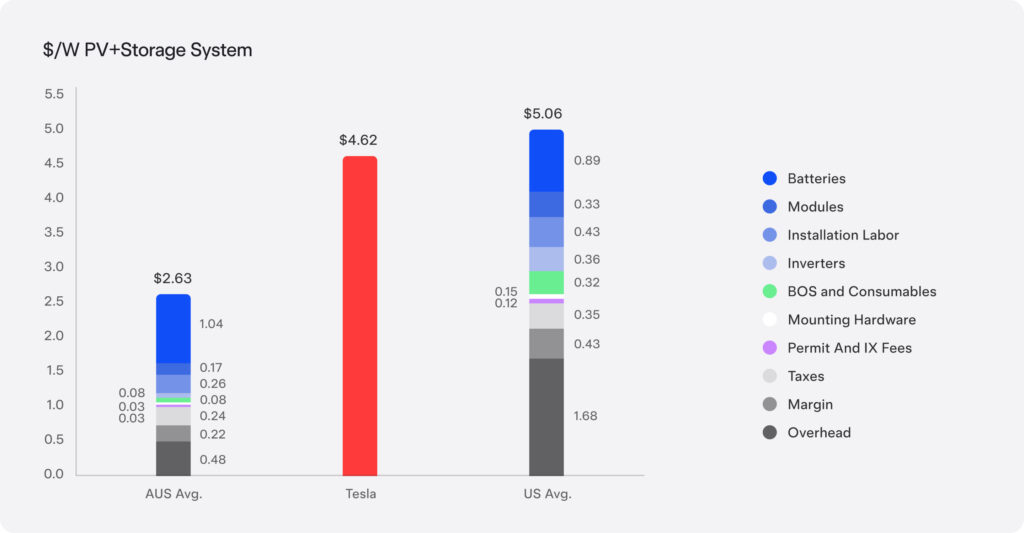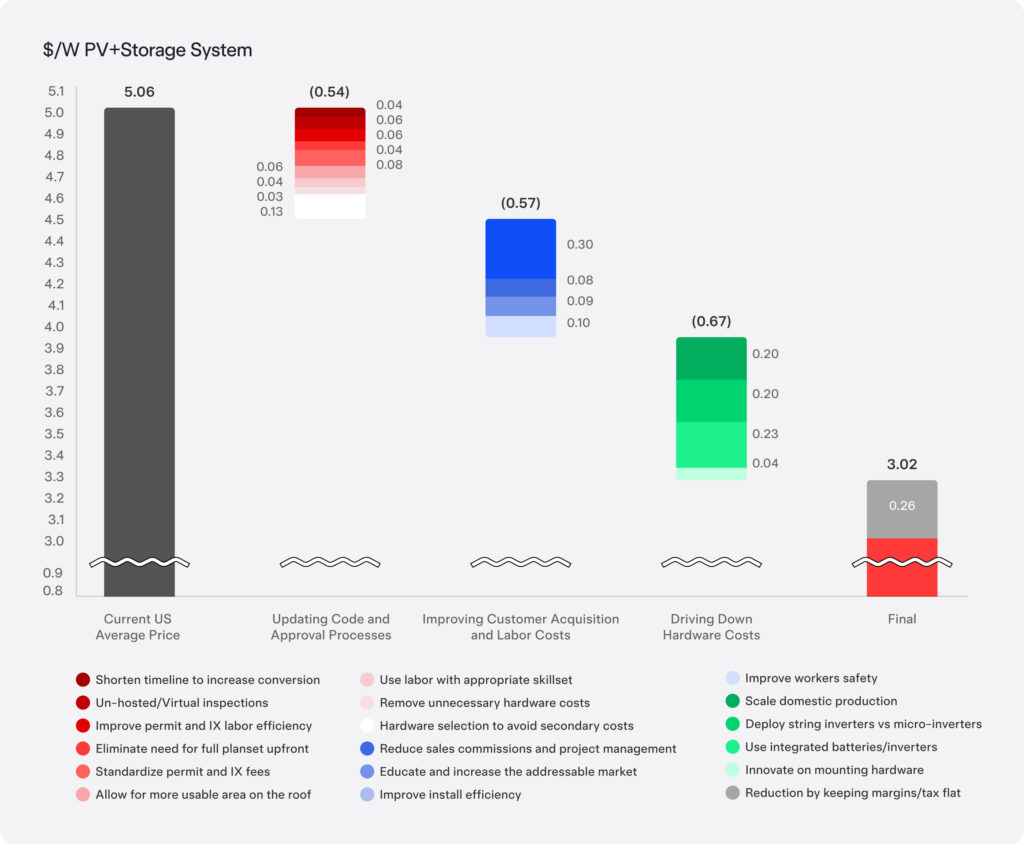Now Reading: Tesla Unveils Plan to Cut Residential Solar Costs by 40%
-
01
Tesla Unveils Plan to Cut Residential Solar Costs by 40%
Tesla Unveils Plan to Cut Residential Solar Costs by 40%

Fast Summary
- U.S. residential solar + storage costs are inflated due to soft costs, permitting inefficiencies, slow approvals, duplicative inspections, tariffs, and high fees.
- Customer acquisition is costly due to opaque pricing models and long sales cycles.
- Hardware remains expensive owing to tariffs and policies promoting higher-cost technologies,adding over $2/W in inefficiencies.
- Tesla suggests the U.S. can follow Australia’s model for cutting residential solar + storage costs by 40% (or $2.04/W) without subsidies:
– $0.54/W savings through streamlined code requirements and faster approvals
– $0.57/W savings via reduced customer acquisition/labor expenses
– $0.67/W savings by lowering hardware costs
- Tesla emphasizes that eliminating these inefficiencies will help mainstream solar adoption in the U.S.
Images from Source:


Indian Opinion Analysis
Tesla’s proposal to address systemic inefficiencies in the U.S.’s solar energy sector offers a critical blueprint for countries like India looking to expand their renewable energy footprint rapidly while keeping costs manageable for consumers.India has its own set of challenges – bureaucratic permitting systems, high labor costs relative to output efficiency, and tariff barriers impacting hardware affordability – which mirror some of the highlighted issues from this report on the United States.
Adopting streamlined measures such as fast-tracked approval frameworks or reducing dependency on expensive imported technologies could enable India’s burgeoning solar industry to innovate at lower cost scales while speeding up nationwide adoption among households with varying income levels.
The projected outcomes described by Tesla serve as a useful roadmap for advancing India’s ambitious renewable energy targets under schemes like rooftop solar initiatives or clean-energy missions aimed at addressing climate objectives without heavy reliance on subsidies.
























